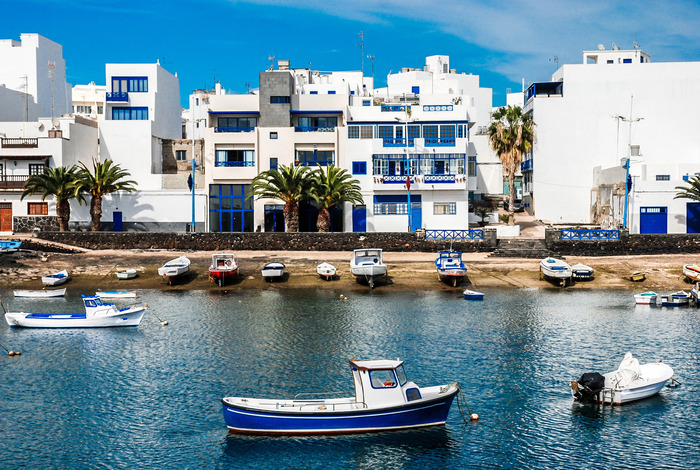Buying property in Lanzarote as a foreigner can be exciting—and a bit overwhelming.
You’re probably dreaming of sunny days, ocean views, and a peaceful lifestyle. But before you start browsing listings, it’s smart to understand how things work here.
Lanzarote is part of Spain, so property laws follow Spanish rules.
That means there are taxes, contracts, notaries, and legal processes that you might not be used to. On top of that, doing it all in a foreign language adds to the stress.
That’s why we’re here. At Fernández & Wenzel, we’ve helped countless foreigners navigate the process with clarity and confidence.
Whether you’re buying a vacation home, a rental investment, or planning a permanent move, here are 9 things you need to know before making any decisions.
1. You Don’t Need To Be A Resident
Foreigners can buy property in Lanzarote without being a resident of Spain.
You will need an NIE number (Número de Identidad de Extranjero), which is your foreigner ID in Spain.
It’s required for all official transactions, including property purchases.
2. Budget For Buying Costs
Buying property in Lanzarote as a foreigner involves more than just the price of the home. Expect to pay around 10–13% in additional costs, which include:
- Property transfer tax (or VAT for new builds)
- Notary fees
- Land registry fees
- Legal fees
A breakdown of these costs can be found on our buying a property in Spain page.
3. Legal Advice Is A Must
Property laws in Spain can be tricky, especially when dealing with rural or older homes. Having an experienced local lawyer helps avoid nasty surprises. We check:
- Ownership status
- Property boundaries
- Debts or liens
- Building permits
Don’t rely on the seller’s agent. Get your own legal support.
4. Financing Can Be Tricky
Some foreign buyers use Spanish mortgages, but not all banks offer them to non-residents.
Lending limits are usually 60–70% of the property value.
If you’re financing with your home country bank, make sure you account for currency exchange risks.
5. Use A Notary For The Final Sale
In Spain, a notary is required to formalize the transaction. They don’t represent either party but make sure the sale is legal. You’ll sign the escritura (deed) at the notary office, and the property is then registered in your name.
6. The Deposit Is Binding
Once you sign the arras contract (deposit agreement), you’re legally bound. If you back out, you lose your deposit. If the seller backs out, they owe you double the deposit. This is standard in Spain—be sure you’re 100% ready.
7. Don’t Forget About Ongoing Taxes
Owning a property means paying annual taxes. These include:
- IBI (property tax)
- Non-resident income tax (even if you don’t rent it)
- Garbage collection fees
You’ll also need to file a Spanish tax return, even as a non-resident.
8. Know The Zoning Rules
Before you buy a rustic villa or land plot, make sure you understand local zoning laws. Some properties can’t be renovated or expanded. Others may not even be legal to live in. A lawyer can check this before you commit.
9. Buying With A Company Or Spouse? Plan Ahead
If you’re buying with a partner or through a company, structure matters. Think about inheritance, tax obligations, and ownership rights. It’s smart to get this sorted before signing any documents.
Conclusion
Buying property in Lanzarote as a foreigner isn’t complicated—but it does require care. With proper guidance, clear paperwork, and local legal support, the process becomes smooth and stress-free.
If you’re planning on buying a property in Spain, especially in Lanzarote, we’re here to help you every step of the way.
Buying property in Lanzarote as a foreigner can be exciting—and a bit overwhelming.
You’re probably dreaming of sunny days, ocean views, and a peaceful lifestyle. But before you start browsing listings, it’s smart to understand how things work here.
Lanzarote is part of Spain, so property laws follow Spanish rules.
That means there are taxes, contracts, notaries, and legal processes that you might not be used to. On top of that, doing it all in a foreign language adds to the stress.
That’s why we’re here. At Fernández & Wenzel, we’ve helped countless foreigners navigate the process with clarity and confidence.
Whether you’re buying a vacation home, a rental investment, or planning a permanent move, here are 9 things you need to know before making any decisions.



